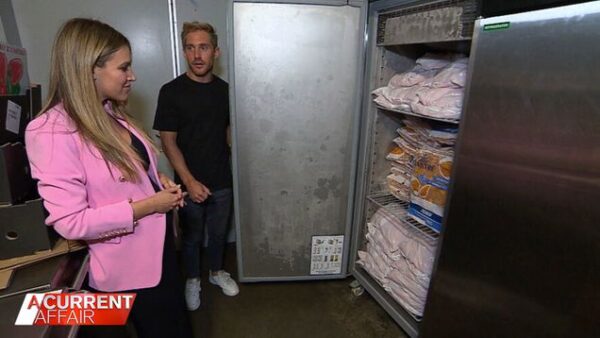Lately, you’ve probably been seeing endless stories about increasing food prices due to food shortages and inflation, but is that really the truth?
A new wave of stories regarding potato and chicken shortages in Australia, in which the only voices that are amplified are those of business owners and corporations, while the voices of workers and the people paying for the food are left as a small afterthought, has recently been deployed across various Australian and international media outlets.
Many of these business owners point toward supply and demand issues, inflation, and food shortages as reasons for passing on costs to customers. Suppliers and corporations have claimed that exceptionally wet weather conditions have affected the supply of crops such as potatoes, without ever giving a clear number regarding the actual output of potatoes year over year, which is surprisingly hard to find.
Despite not being listed anywhere on the National Crop Overview which can be found on the agriculture.gov.au website, nor in the Crop Explorer – World Agricultural Production Brief on Australia, which doesn’t track the production of potatoes, potato production from 2021 to 2022 can be found on the Australian Bureau of Statistics website.
The statistics on this website show a modest decrease in potato production of 13% down from 2021 to 2022, which isn’t all that much when considering that the previous year, horticultural crops saw record-high production levels in Australia. So where are the potatoes? Well, 2022 was the ninth-wettest year on record in Australia’s history, delaying the potato season as farmers had a difficult time getting potatoes into the ground.
On top of planting issues, flooding in late 2022 on the Southern coast of Australia caused infrastructure problems with getting the crop from suppliers to the markets. Now, in February of 2023, business owners and corporations are continuing to ride that wave, using it as an excuse to pass on costs to customers.
Business owners such as a person named Mike who operates Wingboy in Sydney (no last name was provided in the sourced article), used potato shortages as a justification for passing on costs to consumers. Despite supposed shortages, Wingboy was able to put in an extra freezer solely dedicated to stocking up on chips, “We’ve had to buy chest freezers so that when there is supply, we stock up on chips,” he said.

This a classic tactic used by business owners, who are reinforced by corporate media, to normalize rising prices to consumers— wait for a real event (such as the flooding on the southern coast in late 2022) to hike prices, then ride out the wave for as long as you can all the while telling consumers that they just couldn’t afford the strain to their business any longer.
A business owner named Pierre (last name was again not supplied) who operates Five Dock Bowling Club in Sydney echoed the same sentiment saying, “At some stage costs have to be passed on.” It’s almost as if, in the minds of these business owners, it is the innate duty of both consumers and workers to prop up their dreams and subsidize their profit line.
Chicken is the next food staple to be added to this list of supposedly dwindling foods that business owners are adding to the pile of excuses. At Pierre’s restaurant, a schnitzel and a side of fries cost $43.80. Pierre says this is because the price of chips has tripled and chicken is up as well, which does not match the production levels of either potatoes or chicken.
Poultry meat production has increased year over year in Australia, and an Australian Chicken Meat Federation spokeswoman said the ACMF was, “not aware of any broader industry supply issues.” The Australian Bureau of Agriculture and Resources Economics (ABARES) estimated that the 2023-2024 poultry meat production is 1,256 kilotonnes or 47.6kg per person living in Australia. This number is up over previous years.
The suppliers of these food staples are complicit as well, using the lies of shortages and supply chain issues to increase prices for the business owners who in turn, use the same excuse to pass on costs to the consumers. As illustrated in this article, chicken meat production is up, potato production is barely down following a record high year, and corporate greed is ever ravenous.

































